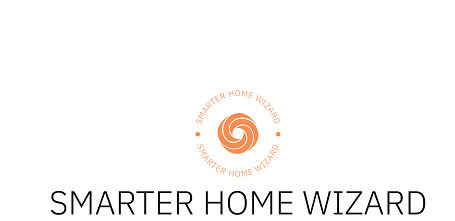Welcome to the world of smart home technology! 🌟 Integrating the right tools with your SmartThings setup can revolutionize your daily living, offering convenience, efficiency, and enhanced control over your environment. In this article, we delve into the best open-source software options available, each providing unique features and benefits. From privacy-focused solutions to user-friendly interfaces, discover how these platforms can elevate your smart home experience to new heights. 🏠✨ Join us as we explore these powerful tools and find the perfect fit for your SmartThings ecosystem. 🚀🔧✨ Let's make your home smarter together! 🌐🔌💡
Introduction
SmartThings is a smart home platform that connects and controls various smart devices in your home. 🏠✨ Imagine having your lights, thermostat, security cameras, and even your coffee maker all working together seamlessly. With SmartThings, you can automate daily routines, ensuring your home is efficient, secure, and convenient. 🌟
The magic lies in its ability to integrate with a wide range of devices and brands, making it a versatile hub for your smart home setup. 📱💡 But to unlock its full potential, finding open-source software that integrates with SmartThings is key. 🔑
Open-source software offers flexibility, customization, and a vibrant community of developers who continuously improve and update the platform. 🛠️💡 It allows you to tailor your smart home system to your specific needs and preferences, ensuring a more personalized and efficient experience. 🌈🌟
Incorporating open-source software with SmartThings not only enhances functionality but also promotes innovation and community collaboration. 🌍🤝 So dive into the world of open-source and create a smart home that's uniquely yours! 🚀🏠💫
Main
In the ever-evolving world of smart home technology, finding the right tools to integrate with your SmartThings setup can be a game-changer.
Open source software offers flexibility, customization, and a vibrant community of developers. Here, we explore the best open source solutions that seamlessly integrate with SmartThings, helping you create the ultimate smart home experience.🏡✨
1. Home Assistant🏠
Key Features:
- Local Control: Operates without relying on cloud services.
- Extensive Integrations: Supports over 1,000 devices and services.
- Customizable Dashboards: Create personalized control panels.
Pros:
- Privacy-Focused: Keeps your data local.
- Active Community: Large user base and frequent updates.
- Flexibility: Highly customizable with numerous add-ons.
Cons:
- Complex Setup: Can be challenging for beginners.
- Resource Intensive: Requires a dedicated device for optimal performance.
Home Assistant is a powerhouse in the open source home automation space. Its ability to run locally ensures your data remains private, and its extensive integration options make it a versatile choice for any smart home enthusiast. However, the initial setup can be daunting, especially for those new to home automation.
2. openHAB🌐
Key Features:
- Modular Architecture: Easily extendable with add-ons.
- Cross-Platform: Runs on various operating systems.
- Rule Engine: Powerful automation rules.
Pros:
- Versatile: Supports a wide range of devices and protocols.
- Community Support: Strong community and documentation.
- Scalable: Suitable for both small and large setups.
Cons:
- Steep Learning Curve: Requires time to master.
- Occasional Stability Issues: Some users report bugs with certain add-ons.
openHAB is known for its flexibility and scalability, making it a great choice for both beginners and advanced users. Its modular design allows for extensive customization, but be prepared to invest some time in learning how to use it effectively.
3. ioBroker 🛠️
️Key Features:
- Multi-Protocol Support: Integrates with various smart home protocols.
- Web-Based Interface: Easy to manage from any device.
- Automation Scripts: Create complex automations with JavaScript.
Pros:
- User-Friendly: Intuitive interface for easy management.
- Extensive Integrations: Supports a wide range of devices.
- Active Development: Regular updates and new features.
Cons:
- Resource Demands: Can be heavy on system resources.
- Documentation: Some areas lack detailed guides.
ioBroker stands out for its user-friendly interface and robust integration capabilities. It’s a solid choice for those looking to manage their smart home with ease, though it may require a bit more power from your hardware. ⚙️
4. Domoticz🏡
Key Features:
- Lightweight: Runs efficiently on low-power devices.
- Customizable Interface: Tailor the dashboard to your needs.
- Extensive Protocol Support: Works with many smart home devices.
Pros:
- Efficient: Low resource usage.
- Easy to Use: Simple setup and configuration.
- Community Plugins: Wide range of plugins available.
Cons:
- Limited Advanced Features: May lack some advanced functionalities.
- Smaller Community: Less active than some other platforms.
Domoticz is perfect for those who want a lightweight, efficient solution for their smart home. Its ease of use and low resource demands make it ideal for running on devices
Conclusion
In summary, choosing the right open source software for your SmartThings setup can elevate your smart home experience. From Home Assistant's extensive integrations to openHAB's versatility, each platform offers unique benefits. ioBroker stands out with its user-friendly interface, while Domoticz excels in efficiency. OpenMotics focuses on energy management, making it ideal for eco-conscious users. 💡 Dive into these communities, explore their features, and tailor your smart home to your needs. 🏠✨ With the right tools, you can create a seamless, automated environment that enhances your daily life and offers endless possibilities. 🚀🔧🌟
Affiliate Disclaimer
This site contains affiliate links, which means that we may receive a small commission, at no cost to you, if you make a purchase through a link. We only promote products or services that we use personally and believe will add value to our readers. Please read our full disclosure policy for more information. Thank you for supporting our site!



